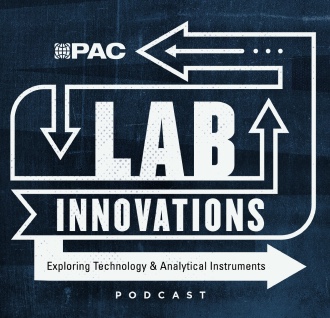Sep-2023
Decarbonisation and electrification
Top 10 advantages of industrial electric process heating equipment over gas-fired heating equipment.
Thermon
Viewed : 2331
Article Summary
Industrial electric process heating equipment offers significant advantages over traditional gas-fired process heating equipment. These advantages are revolutionizing the way industries approach their heating requirements and driving the adoption of electric solutions. Here are the key benefits of industrial electric process heating equipment:
υ Energy Efficiency: Industrial electric process heating equipment boasts remarkable energy efficiency compared to gas-fired counterparts. Electric heaters have minimal energy losses and during the conversion process can have efficiency ratings of up to 99%, ensuring that a large portion of the energy consumed is directly converted into heat. In contrast, gas-fired heaters can lose a considerable amount of energy through combustion and exhaust processes, even taking into account advanced combustion recovery systems.
ϖ Environmental Impact: Electric process heating equipment is an environmentally friendly option. Rather than burning fossil fuels, electricity helps lower greenhouse gas emissions, air pollutants, and reliance on non-renewable resources. It produces zero emissions at the point of use, resulting in improved air quality and a reduced carbon footprint. With increasing concerns about environmental impact and sustainability, electric heating systems align with the global shift towards greener industrial practices, and demonstrate a commitment to environmental stewardship.
ω Process Efficiency: Electric heating equipment heats up quickly and provides instant heat, minimising warm-up times and improving overall process efficiency. This rapid response enables faster production cycles and reduces downtime, resulting in increased productivity and cost savings.
ξ Precision and Control: Electric heating equipment provides precise temperature control and heating profiles, allowing for greater accuracy and consistency in industrial processes. Electric heaters can be easily regulated and adjusted to meet specific temperature requirements, variation of flow rate, and are suitable for higher turn-down ratio, ensuring optimal results in various conditions and minimising the risk of overheating or underheating. Mission-critical electric process heating systems can be connected to dedicated monitoring systems and factory DCS providing full knowledge of system performance and efficiency.
ψ Flexibility and Scalability: Industrial electric process heating equipment offers greater flexibility and scalability options. Electric heaters can be easily integrated into existing infrastructures without the need for extensive modifications. They can also be precisely sized to match the current or future required heating capacity, allowing businesses to expand or adapt their processes without significant reconfigurations.
ζ Reliability and Durability: Electric heating systems are known for their reliability and durability. They have fewer components and moving parts compared to gas-fired equipment, resulting in reduced maintenance requirements and improved longevity. Electric heaters are less prone to breakdowns, ensuring uninterrupted operations and minimising downtime.
{ Cost Savings: Electric process heaters often have a lower initial investment compared to gas-fired boilers. The installation of gas-fired heaters typically involves additional expenses such as the cost of a flue, chimney, or fuel storage tank, which can increase the installation complexity and cost. Electric heaters, on the other hand, eliminate the need for these additional components, resulting in a simpler and more cost-effective installation. Electric systems typically have lower maintenance costs, higher efficiency, and longer lifespans, resulting in reduced operating expenses over time.
| Safety: Electric heating equipment eliminates the need for open flames or combustible fuels, significantly reducing the risk of fire hazards and explosions. Gas-fired systems involve handling flammable gases and require additional safety measures, such as ventilation and gas leak detection systems. Electric heaters offer a safer working environment for employees and minimise the potential for accidents. By prioritising employee safety, businesses using electric heating systems promote a positive safety culture and enhance their social responsibility.
} Reduced Noise Levels: Electric heating equipment operates quietly compared to gas-fired alternatives. Gas burners and blowers generate noise during their operation, which can be disruptive in certain industrial settings. Electric heaters provide a quieter working environment, enhancing employee comfort and concentration.
∼ Integration with Renewable Energy: Industrial electric process heating equipment can easily integrate with renewable energy sources, such as solar or wind power. This capability allows businesses to leverage sustainable energy and reduce their reliance on fossil fuels, further enhancing their environmental credentials.
Overall, industrial electric process heating equipment offers superior energy efficiency, precise control, environmental friendliness, safety, reliability, flexibility, noise reduction, process efficiency, and cost savings compared to gas-fired alternatives. These advantages make electric heating systems a compelling choice for industries seeking to optimise their operations, reduce environmental impact, and embrace sustainable and cost-effective solutions.
With more than 60 years of experience in process heating engineering, Thermon provides the most reliable products and services from around the globe. We specialise in innovative solutions to keep your industrial processes operating without disruption - regardless of environmental conditions or hazardous settings. Harnessing our thermal technology and industry knowledge, we continually deliver energy-efficient products tailored to your project requirements so you can confidently trust us with all your industrial process heating needs across multiple sectors worldwide.
Sponsor:
Categories:
Add your rating:
Current Rating: 5

















